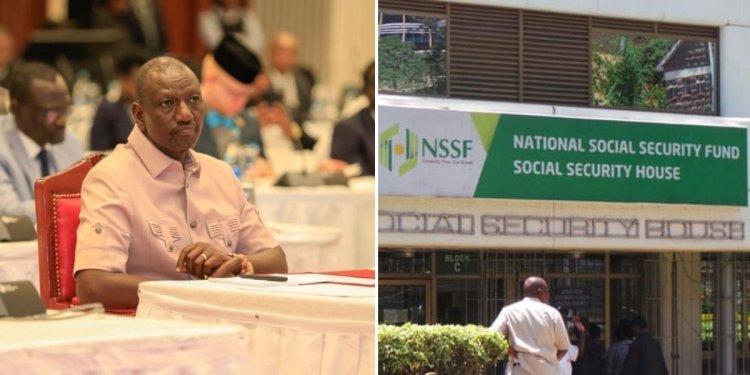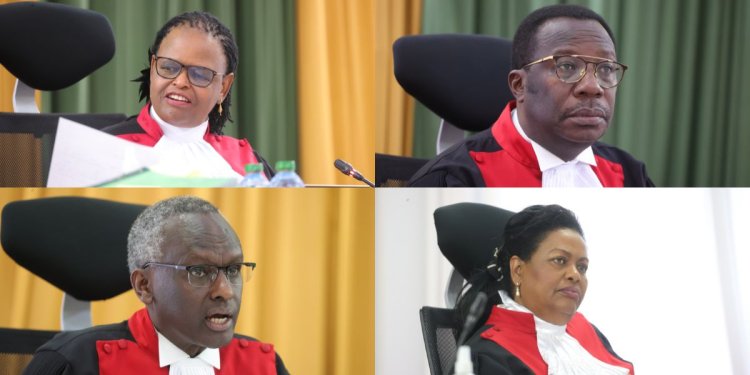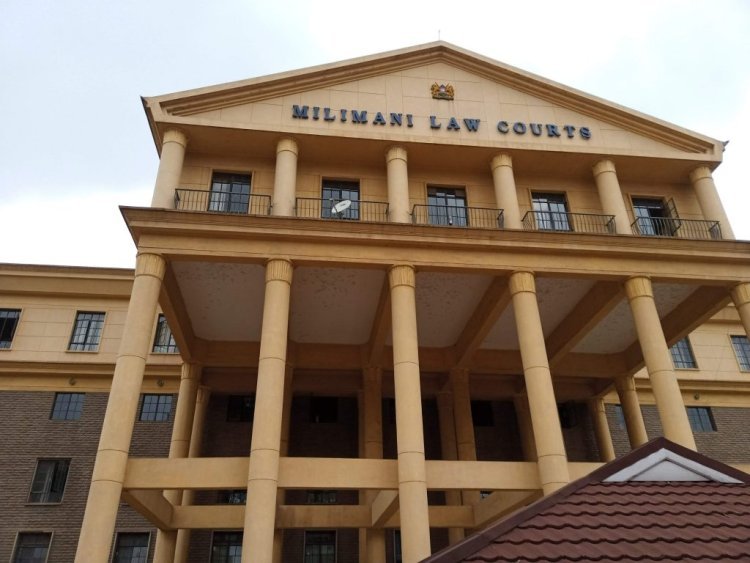Supreme Court Turns Against Ruto In Ruling On NSSF Act
The Court of Appeal in its ruling had previously given the green light to the NSSF Act 2013, arguing that the matter ought to have been determined by the High Court and not the ELRC.

The Supreme Court has lifted the Court of Appeal orders which allowed President William Ruto's government to raise the mandatory pension contributions under the National Social Security Fund (NSSF) scheme.
In the ruling delivered on Wednesday, February 21 by a seven-judge bench led by Chief Justice Martha Koome, the Supreme Court argued that the Appellate court erred in nullifying the Employment and Labour Relations Court (ELRC) decision on the NSFF Act on grounds that it lacked jurisdiction.
The Court of Appeal in its ruling had previously given the green light to the NSSF Act 2013, arguing that the matter ought to have been determined by the High Court and not the ELRC.

A collage of the Supreme Court judges. /COURTESY
“Notwithstanding the fact that this dispute did not emanate from an employee-employer relationship to the extent that the NSSF Act 2013, introduces enhanced and mandatory contributory amounts of employees’ earnings, the new law attracts justiciable grievances from certain cadres of employees and involves major players in the employment and labour relations sector, these factors bring the dispute within the purview of the ELRC,” the Supreme court ruled.
“Consequently, the ELRC has jurisdiction to determine the constitutional validity of a statute in matters concerning employment and labour relations under Article 162(2)(a) of the Constitution.”
The highest court in the land then directed that the case be heard afresh by the Court of Appeal to determine the substantive merits of the ELRC Judgment on a priority basis.
"In the circumstances, this case is to be remitted to the Court of Appeal to determine the substantive merits of the Judgment of the ELRC. Due to the nature of the matter, the surrounding public interest and the time taken by the case in the corridors of justice, it is prudent that the matter be heard on a priority basis," the CJ ruled.
This means that the NSSF Act 2013 case will continue after its legality was contested in court for close to 10 years.
ELRC had ruled that the NSSF Act had implications on County Governments’ finances, and therefore ought to have been tabled before the Senate, and ultimately, the trial court declared the Act unconstitutional.
The Court of Appeal set aside ELRC’s judgment and all consequential orders because the ELRC lacked jurisdiction to determine the constitutional validity of the NSSF Act 2013.
The Appellate Court mentioned that the issue fell within the jurisdiction of the High Court under Article 165(3)(d)(i) of the Constitution.
The judgment delivered by ELRC was appealed at the appellate court which overturned the ruling on grounds that constitutional matters regarding the validity of the NSSF Act were reserved for the High Court.
"According to the Appellate Court, the issue fell squarely within the jurisdiction of the High Court under Article 165(3)(d)(i) of the Constitution, and in any event, the dispute did not arise from an employer-employee relation as prescribed in Section 12 of the ELRC Act," the ruling read in part.
Supreme Court, in its ruling, determined that the ruling delivered by the Employment Court concerned the major players in the employment and labour relations sector and hence fell within the court's purview.
In January 2024, a petition was filed at the High Court challenging the deductions, which were increased on February 9, 2024 between Ksh420 and Ksh1,740, a year after they were enforced.







